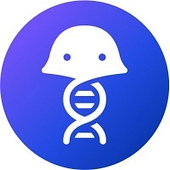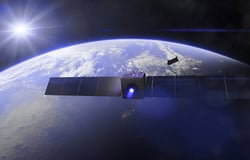Responsibilities
- Develop and Analyze Modeling Frameworks: Design, develop, and maintain modeling and synthesis frameworks incorporating scenarios and critical mission threads based on customer needs.
- Apply Model-Based Systems Engineering (MBSE): Apply MBSE methods with tools like Cameo/MagicDraw to support system development activities, including requirements analysis, system design, and interface definition.
- Utilize modeling methodologies to enable the evaluation and optimization of design parameters and Figures of Merit during the system synthesis of complex aerospace systems
- Design and develop data-driven models and analytics applications using tools like Python, MATLAB, Mathcad and Simulink.
- Apply advanced analytical techniques, including statistical analysis, data mining, machine learning, and potentially deep learning, to extract insights from large datasets.
- Analyze complex datasets to identify trends, anomalies, and key performance indicators, enhancing model accuracy and providing actionable insights.
- Develop and implement algorithms that leverage analytical findings to optimize operational efficiencies.
- Perform operational and mission effectiveness analysis.
- Utilize data analytics for system performance monitoring, anomaly detection, and optimization.
- Collaborate with cross-functional teams, including government stakeholders, software developers, and domain experts.
- Communicate technical information effectively to both technical and non-technical audiences through reports and briefings.
- System Requirements and Design Support: Translate user needs into technical system requirements and support concept development, trade studies, and subsystem reviews.
- Documentation and Configuration Management: Develop and maintain model artifacts, supporting documentation, and ensuring requirements traceability within MBSE models.
- Continuous Improvement: Proactively identify opportunities to improve processes and solutions and contribute to the evolution of advanced technology solutions.
Qualifications
- Bachelor's degree in a STEM field (e.g., Systems Engineering, Computer Science, Electrical Engineering, Mathematics, Physics).
- 5 years of experience in Modeling & Analysis.
- Proficiency in programming languages such as C++, Python, or MATLAB.
- Experience with MBSE methodologies and tools (e.g., Cameo/MagicDraw, SysML).
- Demonstrated experience with data analytics and related tools/techniques.
- Experience in developing and analyzing complex system models and simulations.
- Strong understanding of systems engineering principles and methodologies.
- Excellent communication, interpersonal, and problem-solving skills.
- Ability to work both independently and collaboratively within a team environment.
Preferred Qualifications
- Background in machine learning, artificial intelligence, or data science.
- Familiarity with cloud platforms (e.g., AWS, Azure) and containerization technologies (e.g., Docker).
- Experience with version control tools such as Git or similar.
- Familiarity with Agile development methodologies.
- Experience working with large datasets and related tools (e.g., databases, visualization tools like Tableau or Power BI).
What We Offer!
- Relocation assistance
- Excellent medical, dental, and vision insurance through a PPO plan (100% premium paid for individuals, ~70% for dependents)
- Company-paid life, AD&D, long-term disability, and short-term disability insurances
- Parental leave
- Generous PTO + 10 paid holidays
- 401(k) matching up to 6%
- Lunch and snacks provided every day, including accommodations for all dietary restrictions
- Monthly wellness stipend
- Monthly cell phone stipend
- Yearly education stipend to obtain certifications or take classes in your field
- Fun events, swag, and the occasional airship ride
- An opportunity to change the world and work with some of the smartest and the most talented experts from different fields
Compliance Requirements
- Criminal background check clearance
- Drug test clearance wherever applicable
Top Skills

What We Do
Lighter Than Air (LTA) Research is an aerospace research and development company building experimental and certified manned and remotely piloted airships.
We are developing advanced technologies to dramatically increase the capabilities and lower the cost of 21st century airships. With these next-generation airships, we strive to improve humanitarian aid delivery and reduce carbon emissions, while providing economic opportunity and new jobs to Americans.
LTA airships will have the ability to complement — and even speed up — humanitarian disaster response and relief efforts, especially in remote areas that cannot be easily accessed by plane and boat due to limited or destroyed infrastructure. We ultimately aim to create a family of aircraft with zero emissions that, when used for shipping goods and moving people, would substantially reduce the global carbon footprint of aviation.









